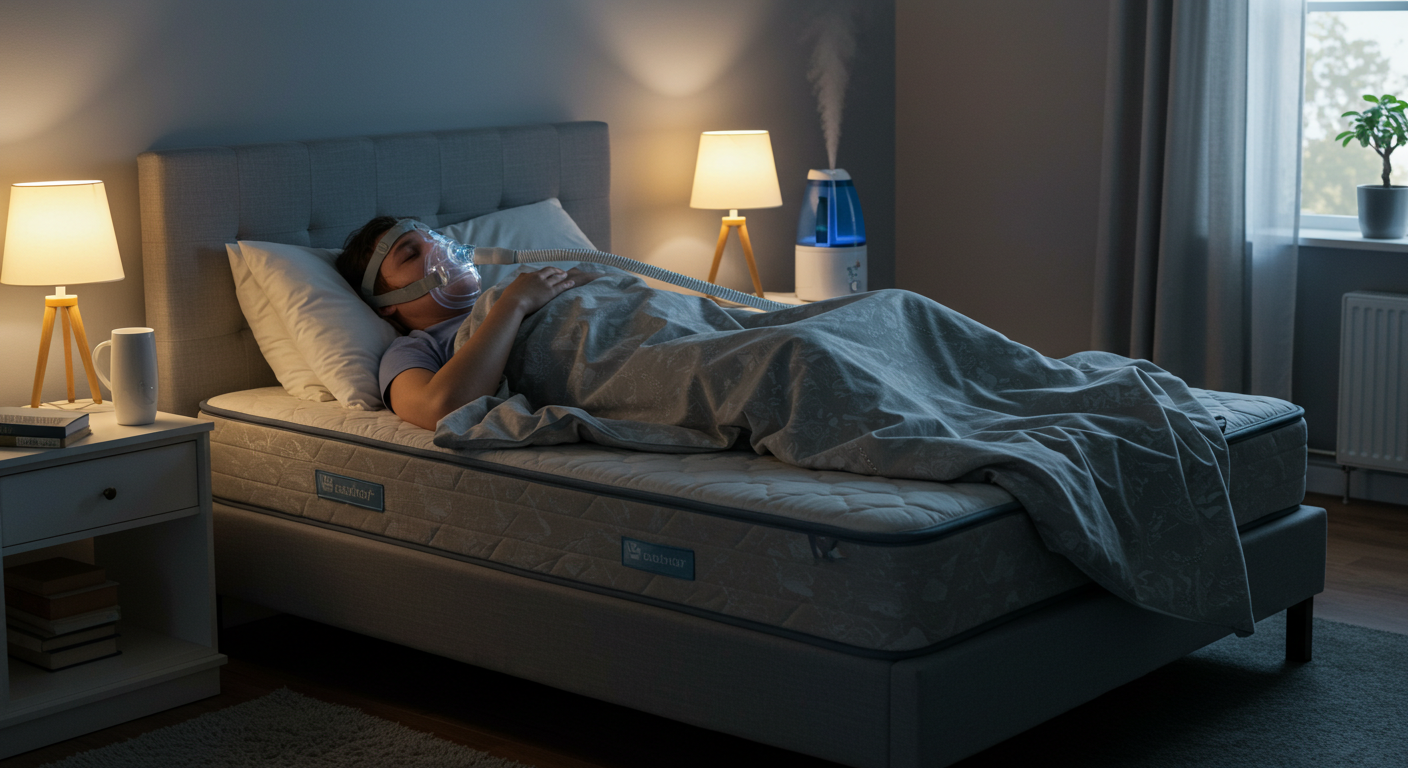Discover how modern CPAP therapy improvements enhance comfort and effectiveness for sleep apnea patients. Get expert tips for better adaptation. Learn more.
Sleep Apnea Treatment: CPAP therapy remains the frontline treatment for obstructive sleep apnea, and modern innovations have significantly enhanced its comfort and effectiveness, making it easier for patients to adapt.
CPAP Therapy Benefits
Continuous positive airway pressure (CPAP) therapy remains the frontline treatment for obstructive sleep apnea, delivering crucial health benefits by ensuring uninterrupted breathing during sleep. This includes protecting the heart, brain, and boosting daytime energy levels, which is transformative for many users despite initial adjustment challenges.
Modern CPAP Innovations
CPAP technology has advanced considerably since the 1980s, with machines now operating near-silently and featuring sleek designs. Masks are tailored with lightweight materials and personalized fits, reducing irritation. As noted by Dr. Timothy Morgenthaler, trends show smaller masks, quieter technology, and intuitive usability are key improvements.
Smart CPAP Technology
Recent developments have introduced smart CPAP machines that auto-tune air pressure using sensors and offer Bluetooth integration for monitoring via apps. For new users, consistent nightly use is encouraged to maximize therapy benefits.
Key Considerations for CPAP Use
To achieve optimal results, focus on consistent daily use, explore resources for quicker adaptation, and consult sleep specialists for recommendations on masks or technology.
Conclusion
CPAP therapy advancements mean quieter, smarter options that support better user experiences and health outcomes through consistent nightly use and personalized adjustments.
Frequently Asked Questions
How do modern CPAP machines improve sleep apnea treatment?
Modern CPAP machines feature quieter operation, compact designs, AI-driven pressure adjustment, and app connectivity, which improve accuracy, comfort, and lead to higher patient compliance.
Which CPAP mask options suit sensitive users?
Nasal pillows minimize contact with the face, women-specific masks provide tailored fits, and memory-foam materials prevent leaks and pressure sores. Testing different sizes helps find the ideal seal.
Sources
- Tips for Adapting to CPAP Therapy: https://www.mayoclinic.org/diseases-conditions/sleep-apnea/symptoms-causes/syc-20351854
- CPAP Mask Options and Fitting: https://www.cdc.gov/sleep/disorders/sleep_apnea.html
- Tips for Adapting to CPAP Therapy: https://www.webmd.com/sleep-disorders/guides/coping-with-cpap








